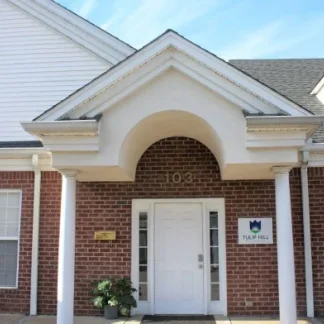Addiction Campuses - Spring 2 Life
Addiction Campuses – Spring 2 Life is a private rehab located in Murfreesboro, T...
At Tulip Hill Recovery, we understand that your struggle is unique. We know that if you struggle with drug addiction, alcohol addiction, mental health, or a combination of the two, it can be extremely difficult.
Tulip Hill is here to help you join the millions of Americans in active recovery. We bridge the gap between world-class clinical treatment and a holistic, caring environment at our rehab center in Murfreesboro, TN. We also offer drug addiction rehab in Nashville. We truly believe that recovery is possible for anyone. Since opening, we’ve helped hundreds of people find their feet in sobriety through our holistic approach to treatment. We believe that substance and alcohol addictions are often only a band-aid on a much larger problem – mental illness. According to the National Institute on Drug Abuse (NIDA), around 7.7 million American adults have co-occurring addiction and mental health conditions. Our dual diagnosis treatment encompasses all of the most effective parts of drug and alcohol rehab and mental health treatment to get to the root of the real problem.
Contact us for more information: (629) 201-7752

Connect with Tulip Recovery by calling their admissions team directly.
(629) 201-7752 Website Get DirectionsEMDR is a therapeutic modality originally developed to help process trauma. In an EMDR session, a patient is prompted to undergo eye movements that mimic those of REM sleep. This is accomplished by watching a therapist's finger move back and forth across, or following a bar of light. The goal is repetitive sets of eye movements that help the brain reprocess memory, which can significantly reduce the intensity of remembered traumatic incidents. Associated memories can heal simultaneously, leaving patients significantly calmer, more stable, and more emotionally relaxed.
Addiction Campuses – Spring 2 Life is a private rehab located in Murfreesboro, T...
Pathfinders Counseling is a private rehab located in Murfreesboro, Tennessee. Pa...
Baptist Rehabilitation Center is a private rehab located in Murfreesboro, Tennes...
AA – Alcoholics Anonymous is a non-profit rehab located in Murfreesboro, Tenness...